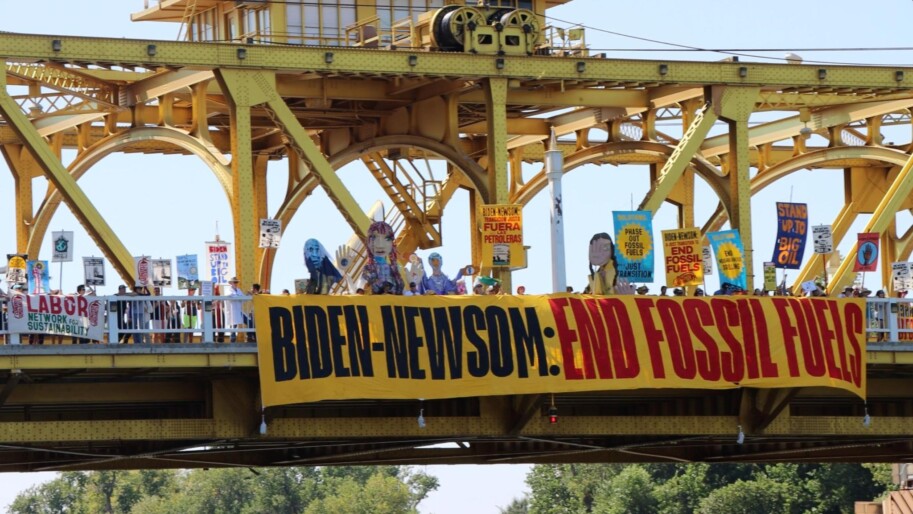Last weekend’s storm that knocked out power for 800,000 Californians drove home what climate extremes mean in real life. The storm was yet another record-breaker after a year of climate disruptions that shocked scientists — from record-high temperature averages in 77 countries to severe floods in China, Greece, India, Libya, New Zealand, and the United States to extreme wildfires in Canada, Chile, Europe, Maui, and Russia.
Unfortunately, climate disasters are becoming less shocking and more expected. That’s because, for the first time in human history, the world passed the 1.5 degrees Celsius threshold of global warming in 2023. That 1.5 degrees Celsius target is based on temperatures averaged over many years, so a single year exceeding this warming doesn’t mean it’s a permanent state. Every tenth of a degree of warming we can prevent makes a difference. However, with climate pollution from fossil fuels continuing to set record highs, the latest science indicates that average global temperatures are likely to regularly exceed 1.5 degrees Celsius in the next decade, wreaking havoc on ecosystems and communities all over the world.
Global powers, including the United States, have so far been unwilling to rein in fossil fuels. The recent United Nations climate conference (COP28) confirmed that there’s a void of global climate leadership. As a major oil-producing state, California can and must step up to lead the world away from oil, gas, and coal.
At our recent webinar about COP28, State Senators Monique Limón and Henry Stern emphasized the importance of California’s climate leadership in phasing out fossil fuels. A critical step in the transition is to eliminate the estimated $8 billion in subsidies and tax breaks California makes available to oil and gas corporations each year. This money should be invested in clean energy, natural climate solutions, and resilience to the climate impacts that are already at our doorstep.
Take a moment now to urge Governor Newsom to eliminate fossil fuel subsidies and prioritize climate investments that protect us all!
This blog first appeared in The Climate Center’s bi-weekly newsletter. To keep up with the latest climate news and ways to take action for a climate-safe future, subscribe today!


